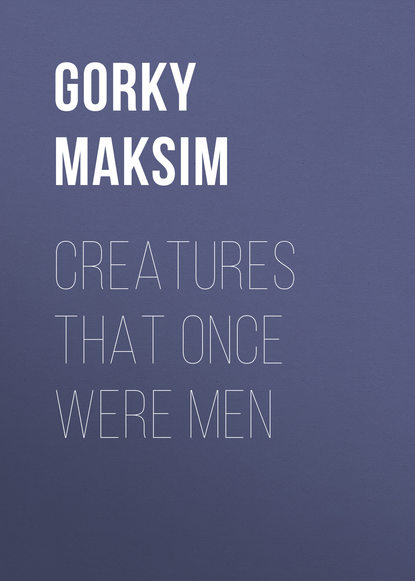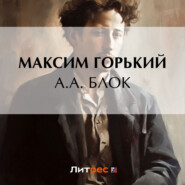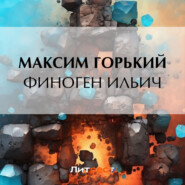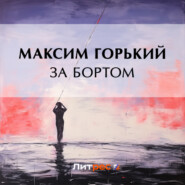По всем вопросам обращайтесь на: info@litportal.ru
(©) 2003-2025.
✖
Creatures That Once Were Men
Настройки чтения
Размер шрифта
Высота строк
Поля
"Such a subject must be treated with plenty of pepper.."
Then a short discussion begins. The people listen attentively, as only one bottle of vodki has been drunk.
After the leader, they read the local events, then the court proceedings, and, if in the police court it reports that the defendant or plaintiff is a merchant, then Aristid Kuvalda sincerely rejoices. If someone has robbed the merchant, "That is good," says he. "Only it is a pity they robbed him of so little." If his horses have broken down, "It is sad that he is still alive." If the merchant has lost his suit in court, "It is a pity that the costs were not double the amount."
"That would have been illegal," remarks the teacher.
"Illegal! But is the merchant himself legal?" inquires Kuvalda bitterly.
"What is the merchant? Let us investigate this rough and uncouth phenomenon. First of all, every merchant is a mujik.
He comes from a village, and in course of time becomes a merchant.
In order to be a merchant, one must have money.
"Where can the mujik get the money from? It is well known that he does not get it by honest hard work, and that means that the mujik, somehow or other, has been swindling. That is to say, a merchant is simply a dishonest mujik."
"Splendid!" cry the people, approving the orator's deduction, and Tyapa bellows all the time, scratching his breast. He always bellows like this as he drinks his first glass of vodki, when he has a drunken headache. The Captain beams with joy. They next read the correspondence. This is, for the Captain, "an abundance of drinks," as he himself calls it. He always notices how the merchants make this life abominable, and how cleverly they spoil everything. His speeches thunder at and annihilate merchants. His audience listens to him with the greatest pleasure, because he swears atrociously. "If I wrote for the papers," he shouts, "I would show up the merchant in his true colors.. I would show that he is a beast, playing for a time the role of a man. I understand him! He is a rough boor, does not know the meaning of the words 'good taste,' has no notion of patriotism, and his knowledge is not worth five kopecks."
Abyedok, knowing the Captain's weak point, and fond of making other people angry, cunningly adds:
"Yes, since the nobility began to make acquaintance with hunger, men have disappeared from the world.."
"You are right, you son of a spider and a toad. Yes, from the time that the noblemen fell, there have been no men. There are only merchants, and I hate them."
"That is easy to understand, brother, because you too, have been brought down by them.."
"I? I was ruined by love of life.. Fool that I was, I loved life, but the merchant spoils it, and I cannot bear it, simply for this reason, and not because I am a nobleman. But if you want to know the truth, I was once a man, though I was not noble. I care now for nothing and nobody.. and all my life has been tame – a sweetheart who has jilted me – therefore I despise life, and am indifferent to it."
"You lie!" says Abyedok.
"I lie?" roars Aristid Kuvalda, almost crimson with anger.
"Why shout?" comes in the cold sad voice of Martyanoff.
"Why judge others? Merchants, noblemen..what have we to do with them?"
"Seeing what we are".. puts in Deacon Taras.
"Be quiet, Abyedok," says the teacher good-naturedly.
"Why do you provoke him?" He does not love either discussion or noise, and when they quarrel all around him his lips form into a sickly grimace, and he endeavors quietly and reasonably to reconcile each with the other, and if he does not succeed in this he leaves the company. Knowing this, the Captain, if he is not very drunk, controls himself, not wishing to lose, in the person of the teacher, one of the best of his listeners.
"I repeat," he continues, in a quieter tone, "that I see life in the hands of enemies, not only enemies of the noble but of everything good, avaricious and incapable of adorning existence in any way."
"But all the same, says the teacher, "merchants, so to speak, created Genoa, Venice, Holland – and all these were merchants, merchants from England, India, the Stroyanoff merchants.."
"I do not speak of these men, I am thinking of Judas Petunikoff, who is one of them.."
"And you say you have nothing to do with them?" asks the teacher quietly.
"But do you think that I do not live? Aha! I do live, but I suppose I ought not to be angry at the fact that life is desecrated and robbed of all freedom by these men."
"And they dare to laugh at the kindly anger of the Captain, a man living in retirement?" says Abyedok teasingly.
"Very well! I agree with you that I am foolish. Being a creature who was once a man, I ought to blot out from my heart all those feelings that once were mine. You may be right, but then how could I or any of you defend ourselves if we did away with all these feelings?"
"Now then, you are talking sense," says the teacher encouragingly.
"We want other feelings and other views on life.. We want something new..because we ourselves are a novelty in this life.."
"Doubtless this is most important for us," remarks the teacher.
"Why?" asks Kanets. "Is it not all the same whatever we say or think? We have not got long to live I am forty, you are fifty.. there is no one among us younger than thirty, and even at twenty one cannot live such a life long."
"And what kind of novelty are we?" asked Abyedok mockingly.
"Since nakedness has always existed"
"Yes, and it created Rome," said the teacher.
"Yes, of course," says the Captain, beaming with joy.
"Romulus and Remus, eh? We also shall create when our time comes.."
"Violation of public peace," interrupts Abyedok. He laughs in a self-satisfied way. His laughter is impudent and insolent, and is echoed by Simtsoff, the Deacon and Paltara Taras. The naive eyes of young Meteor light up, and his cheeks flush crimson.
Kanets speaks, and it seems as if he were hammering their heads.
"All these are foolish illusions.. fiddlesticks!"
It was strange to see them reasoning in this manner, these outcasts from life, tattered, drunken with vodki and wickedness, filthy and forlorn. Such conversations rejoiced the Captain's heart. They gave him an opportunity of speaking more, and therefore he thought himself better than the rest. However low he may fall, a man can never deny himself the delight of feeling cleverer, more powerful, or even better fed than his companions. Aristid Kuvalda abused this pleasure, and never could have enough of it, much to the disgust of Abyedok, Kubar, and others of these creatures that once were men, who were less interested in such things.
Politics, however, were more to the popular taste.
The discussions as to the necessity of taking India or of subduing England were lengthy and protracted.
Nor did they speak with less enthusiasm of the radical measure of clearing Jews off the face of the earth. On this subject Abyedok was always the first to propose dreadful plans to effect the desired end, but the Captain, always first in every other argument, did not join in this one. They also spoke much and impudently about women, but the teacher always defended them, and sometimes was very angry when they went so far as to pass the limits of decency. They all, as a rule, gave in to him, because they did not look upon him as a common person, and also because they wished to borrow from him on Saturdays the money which he had earned during the week. He had many privileges. They never beat him, for instance, on these occasions when the conversation ended in a free fight. He had the right to bring women into the dosshouse; a privilege accorded to no one else, as the Captain had previously warned them.
"No bringing of women to my house," he had said. "Women, merchants and philosophers, these are the three causes of my ruin. I will horsewhip anyone bringing in women. I will horsewhip the woman also.. And as to the philosopher, I'll knock his head off for him." And notwithstanding his age he could have knocked anyone's head off, for he possessed wonderful strength. Besides that, whenever he fought or quarrelled, he was assisted by Martyanoff, who was accustomed during a general fight to stand silently and sadly back to back with Kuvalda, when he became an all destroying and impregnable engine of war. Once when Simtsoff was drunk, he rushed at the teacher for no reason whatever, and getting hold of his head tore out a bunch of hair.
Kuvalda, with one stroke of his fist in the other's chest, sent him spinning, and he fell to the ground. He was unconscious for almost half-an-hour, and when he came to himself Kuvalda compelled him to eat the hair he had torn from the teacher's head. He ate it, preferring this to being beaten to death.
Besides reading newspapers, fighting and indulging in general conversation, they amused themselves by playing cards.
They played without Martyanoff because he could not play honestly.
After cheating several times, he openly confessed:

















